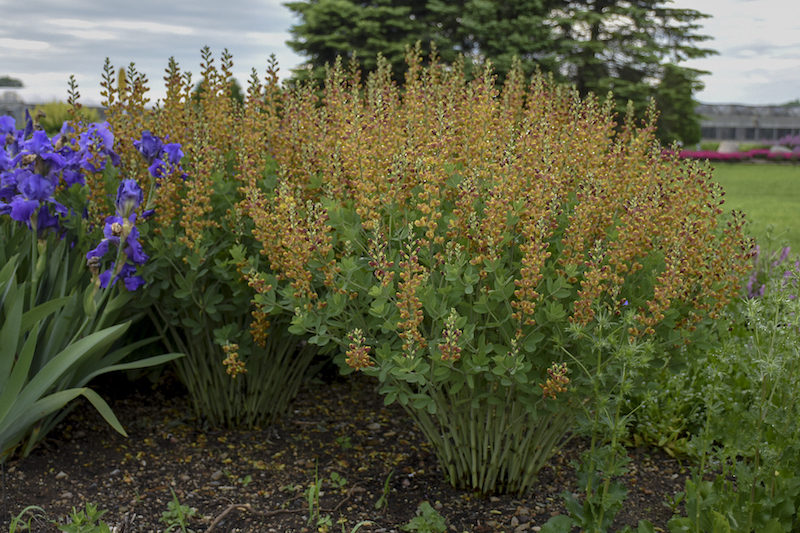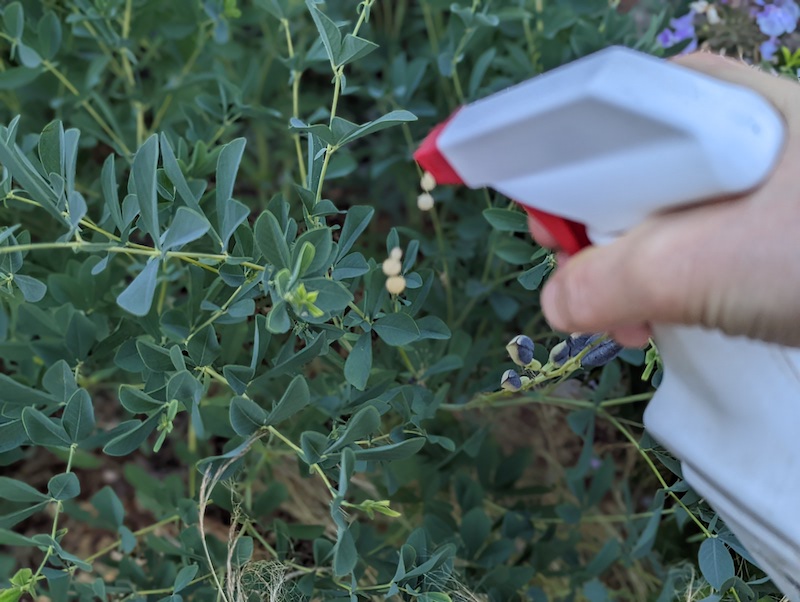False Indigo (Baptisia) is not typically bothered by small herbivores or deer. Deer generally find this plant unpalatable. However, it can be affected by the Genista Broom moth, which can devour the plant right down to the ground. Fortunately, for the home gardener, a healthy False Indigo will bounce back from an attack with no harm done.

Evergreens and some deciduous trees are more likely to be eaten by deer during winter months when their normal food source is scarce; however False Indigo is dormant in the winter and does not have any growth available to foragers. Rutgers University rates False Indigo as A on their list of plants damaged by deer, which means it is rarely eaten by them.
| Rarely Damaged |
| Seldom Severely Damaged |
| Occasionally Severely Damaged |
| Frequently Severely Damaged |
Keeping Deer Away From False Indigo
A small fence or the use of thorny shrubs around the plant may help deter deer from browsing False Indigo. Although baptisia is not preferred by deer, it may become a food source when their usual options are scarce. Liquid Fence Deer and Rabbit Repellent may be sprayed on or near the plant to deter herbivores if you notice any damage. Deer and rabbits are more likely to eat young, tender foliage, while voles may eat the soft roots on occasion. A simple wire mesh surrounding the crown should help keep them away.

Will False Indigo Come Back After Deer Eat Them?
False Indigo is a tough perennial and if deer were to sample it, the plant should suffer no long-term damage and will grow back fine the following spring. You can trim any damaged stems to tidy the shape of the plant. As False Indigo blooms at the end of long stalks, any area damaged by deer in early spring could impact flowering for that year.
Fertilizing a False Indigo after deer browsing is not recommended. False Indigo are not heavy feeders and fix their own nitrogen in the soil. Fertilizing them may boost foliage production at the expense of blooming.

Sources:
"Landscape Plants Rated by Deer Resistance." Rutgers New Jersey Agricultural Experiment Station. njaes.rutgers.edu
"What’s Bugging Your Garden? Broom Moth." South Dakota State University Extension. extension.sdstate.edu
 |
Author Chris Link - Published 08-23-2022 |
